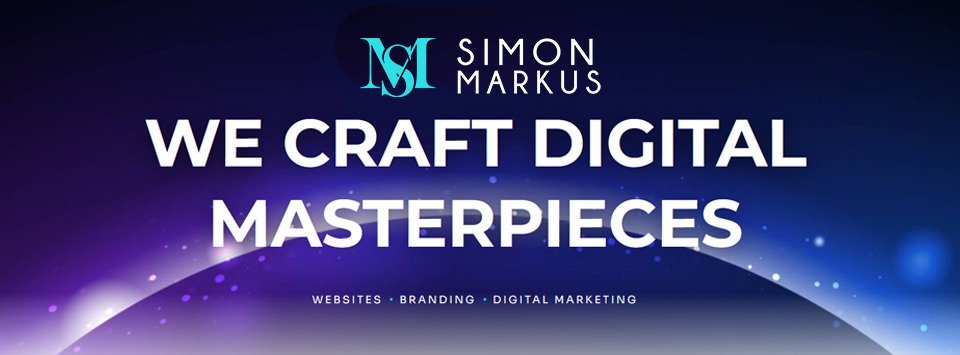What you will learn by reading this article:
- What is domain authority and why is it important for SEO?
- Factors that influence domain authority and strategies to improve it.
- How to evaluate, monitor, and compare domain authority.
Understanding Domain Authority and Its Impact on SEO
What is Domain Authority?
Domain Authority (DA) is a metric created by Moz that predicts how well a website will rank on search engine result pages (SERPs). It assigns a score from 1 to 100, with higher scores indicating a greater likelihood of ranking highly. Domain Authority takes into account factors like the quality and quantity of backlinks, content relevance, and user experience.
Why is Domain Authority Important for SEO?
Having a high domain authority is crucial for SEO success because it offers several benefits:
- Improved Search Engine Rankings: Websites with higher domain authority are more likely to rank higher in search results, leading to increased visibility and exposure to potential customers.
- Increased Organic Traffic: Higher rankings result in more organic traffic as users are more likely to click on links that appear on the first page of search results.
- Enhanced Credibility and Trust: A high domain authority signals to search engines and users that your site is reliable and trustworthy, positively impacting your brand reputation and encouraging user engagement.
Factors Influencing Domain Authority
Several factors influence domain authority. Let’s explore the most significant ones:
Backlinks and Link Building
Backlinks play a crucial role in determining domain authority. A backlink is a link from another website to yours, indicating that your content is valuable and authoritative. Here’s how you can leverage backlinks to improve your domain authority:
- Importance of High-Quality Backlinks: Focus on acquiring backlinks from reputable and relevant websites. High-quality backlinks from authoritative sources have a greater impact on your domain authority.
- Strategies for Building Authoritative Backlinks: Engage in outreach campaigns to build relationships with industry influencers and authoritative websites. Guest blogging, content collaborations, and participating in industry forums can help you secure valuable backlinks.
Content Quality and Relevance
Content is a critical factor in determining domain authority. Here’s how you can optimize your content to improve your domain authority:
- Creating Valuable and Engaging Content: Produce high-quality, informative, and engaging content that resonates with your target audience. This will naturally attract backlinks and improve your domain authority.
- Optimizing Content for Keywords and User Intent: Conduct thorough keyword research to identify the terms and phrases your target audience is searching for. Incorporate these keywords naturally in your content to improve its relevance and visibility.
User Experience and Site Performance
User experience and site performance significantly impact domain authority. Consider the following aspects to enhance user experience and improve your domain authority:
- Enhancing Site Speed, Mobile Optimization, and User-Friendly Design: Ensure your website loads quickly and is optimized for mobile devices. A responsive design and intuitive navigation will improve user experience and encourage users to spend more time on your site.
- Impact of Technical SEO Aspects on Domain Authority: Technical SEO elements, such as proper URL structure, meta tags, and sitemaps, contribute to a positive user experience. Pay attention to these technical elements to enhance your domain authority.
Evaluating and Monitoring Domain Authority
To effectively improve your domain authority, you need to evaluate and monitor it regularly. Here’s how you can do that:
Tools and Metrics for Measuring Domain Authority
Several tools, like Moz’s Domain Authority score, can help you measure your domain authority. These tools consider various factors and provide a comprehensive analysis of your website’s authority. It’s essential to understand these metrics and use them to track your progress.
Monitoring Domain Authority Over Time
Regularly tracking your domain authority allows you to identify trends and strategies that work. It enables you to make data-driven decisions and adapt your SEO strategies accordingly. Consider the following strategies to improve and maintain your domain authority:
- Tracking Progress and Identifying Trends: Monitor your domain authority regularly and analyze the changes over time. Correlate significant shifts with your SEO efforts to determine what works and what needs improvement.
- Strategies for Improving and Maintaining Domain Authority: Continuously work on building high-quality backlinks, creating valuable content, and enhancing the user experience to improve and maintain your domain authority.
Strategies to Improve Domain Authority
Now that you understand the factors influencing domain authority, let’s explore strategies to improve it:
Building High-Quality Backlinks
Building high-quality backlinks is crucial for improving domain authority. Here are some strategies to acquire authoritative backlinks:
- Identifying Authoritative Websites for Link Building Opportunities: Research and identify influential websites in your industry. Reach out to them with personalized and compelling pitches to secure valuable backlinks.
- Outreach and Relationship-Building Techniques: Engage with influencers, industry experts, and bloggers through outreach campaigns. Collaborate on content creation, interviews, or guest blogging opportunities to earn backlinks from their websites.
Creating Valuable and Engaging Content
Creating valuable and engaging content not only attracts backlinks but also establishes your website as an authoritative source. Consider the following strategies:
- Keyword Research and Content Planning: Conduct keyword research to identify topics and keywords that resonate with your target audience. Plan your content strategy accordingly to provide valuable information and address their pain points.
- Incorporating Multimedia and Interactive Elements: Enhance the engagement level of your content by incorporating multimedia elements such as images, videos, infographics, and interactive features. This makes your content more shareable and link-worthy.
On-Page Optimization
On-page optimization is crucial for improving your domain authority. Pay attention to the following aspects:
- Optimizing Meta Tags, Headings, and Internal Linking: Optimize your meta tags, including title tags and meta descriptions, to improve your website’s visibility in search results. Use relevant keywords naturally in headings and subheadings. Internal linking within your content also helps search engines understand the structure of your website.
- Structuring Content for Readability and SEO: Organize your content into easily scannable sections with clear headings and subheadings. Use bullet points and numbered lists to improve readability. Incorporate relevant keywords throughout the content while ensuring it flows naturally.
Enhancing User Experience and Site Performance
A positive user experience and site performance contribute to improved domain authority. Consider the following strategies:
- Responsive Design and Mobile Optimization: Ensure your website is responsive and optimized for mobile devices. This provides a seamless experience for users across different devices and positively impacts your domain authority.
- Improving Site Speed and Performance: Optimize your website’s speed by minimizing file sizes, leveraging browser caching, and using content delivery networks (CDNs). A fast-loading website improves user experience and encourages users to engage with your content.
Common Mistakes and Pitfalls to Avoid
While working on improving your domain authority, it’s essential to avoid common mistakes and pitfalls. Here are a few to keep in mind:
Overemphasizing Quantity over Quality
Focusing solely on acquiring a high quantity of backlinks without considering their quality can harm your domain authority. Avoid the following practices:
- The Negative Impact of Low-Quality Backlinks on Domain Authority: Low-quality backlinks from spammy or irrelevant websites can negatively impact your domain authority and result in search engine penalties.
- Strategies for Identifying and Avoiding Spammy Practices: Conduct regular backlink audits to identify and disavow any low-quality or spammy backlinks. Focus on building relationships with authoritative websites and earning high-quality backlinks naturally.
Neglecting Technical SEO Aspects
Technical SEO plays a significant role in domain authority. Neglecting technical aspects can hinder your efforts to improve domain authority. Avoid the following mistakes:
- Importance of Technical SEO for Domain Authority: Technical SEO elements, such as proper URL structure, canonical tags, and XML sitemaps, impact your website’s visibility and user experience. Address these technical aspects to improve your domain authority.
- Common Technical Issues to Address: Resolve common technical issues such as broken links, duplicate content, slow page speed, and crawlability errors. Regularly perform technical audits to identify and fix these issues.
Ignoring User Experience and Site Performance
User experience and site performance are essential factors in determining domain authority. Avoid the following mistakes:
- The Impact of Poor UX and Slow Loading Times on Domain Authority: Websites with poor user experience and slow loading times tend to have higher bounce rates and lower user engagement. This can negatively affect your domain authority.
- Best Practices for Improving User Experience: Optimize your website’s navigation, layout, and overall design to provide a seamless and user-friendly experience. Improve page load times by optimizing images, leveraging caching, and minimizing unnecessary scripts.
The Relationship Between Domain Authority and Google’s Core Updates
Google’s algorithm updates can significantly impact domain authority and search engine rankings. Understanding their impact is crucial. Consider the following:
How Google Algorithm Updates Affect Domain Authority
Google’s algorithm updates, like Panda and Penguin, aim to improve search engine results’ quality and relevance. These updates can impact your domain authority in the following ways:
- Overview of Major Algorithm Updates: Familiarize yourself with major algorithm updates like Panda, which targets low-quality content, and Penguin, which focuses on link quality. These updates can directly impact your domain authority.
- Their Impact on Domain Authority and Search Engine Rankings: Algorithm updates can lead to fluctuations in your domain authority and search engine rankings. It’s essential to adapt your SEO strategies to align with these updates.
Strategies to Adapt to Algorithm Changes
To mitigate any negative impacts of algorithm changes on your domain authority, consider the following strategies:
- Staying Updated with the Latest SEO Trends and Best Practices: Keep yourself informed about the latest SEO trends, algorithm updates, and best practices. This will help you adapt your strategies proactively.
- Adapting SEO Strategies to Mitigate Negative Impacts: Continuously monitor your website’s performance and make necessary adjustments to your SEO strategies. Focus on providing high-quality content, building authoritative backlinks, and optimizing user experience to maintain a strong domain authority.
Case Study: From Zero to Hero – How John Doubled His Domain Authority
John, a small business owner, had just launched his new website. He knew that having a strong online presence was crucial for his business’s success, so he wanted to improve his website’s visibility in search engine rankings. That’s when he stumbled upon the concept of domain authority.
John started by understanding what domain authority is and why it is important for SEO. He learned that domain authority is a metric that predicts how well a website will rank on search engine results pages. The higher the domain authority, the more likely it is to rank higher in search results.
After researching the factors that influence domain authority, John realized that building high-quality backlinks and creating valuable content were key. He started by reaching out to authoritative websites in his industry and securing backlinks. He also invested time and effort in creating engaging content that addressed his target audience’s needs and interests.
To monitor his progress, John used tools like Moz’s Domain Authority score. He saw his domain authority increase gradually over time, which motivated him to continue his efforts. He made sure to regularly analyze his domain authority data and identify any trends or areas for improvement.
In addition to building backlinks and creating valuable content, John paid attention to technical SEO aspects and user experience. He optimized his website for speed, mobile devices, and user-friendly design. These improvements not only enhanced the user experience but also had a positive impact on his domain authority.
After several months of consistent effort, John saw a significant improvement in his website’s domain authority. It had doubled since he first started, and he noticed a corresponding increase in organic traffic and search engine rankings. His website was now receiving more visibility and attracting more potential customers.
John’s success story demonstrates the power of mastering domain authority for SEO success. By focusing on building high-quality backlinks, creating valuable content, and optimizing his website for technical SEO and user experience, he was able to significantly improve his domain authority and achieve better search engine rankings. John’s experience shows that with dedication and the right strategies, anyone can boost their SEO success by mastering domain authority.
Comparing Domain Authority with Competitors
Analyzing your competitors’ domain authority can provide valuable insights into your own SEO efforts. Consider the following:
Analyzing Competitors’ Domain Authority
Benchmarking your domain authority against your competitors’ allows you to understand your relative positioning and identify areas for improvement. Use tools and techniques for competitor analysis, such as:
- Benchmarking Domain Authority Against Competitors in the Industry: Identify your main competitors and analyze their domain authority scores. Understand their backlink profiles and content strategies to gain insights into their success.
- Tools and Techniques for Competitor Analysis: Utilize tools like Moz’s Open Site Explorer and Ahrefs to analyze your competitors’ backlinks, keyword rankings, and content performance.
Developing Strategies to Outperform Competitors
Based on your competitor analysis, develop strategies to outperform your competitors’ domain authority. Consider the following:
- Identifying Areas of Improvement Based on Competitor Analysis: Analyze your competitors’ strengths and weaknesses. Identify areas where you can differentiate yourself and improve your domain authority.
- Implementing Strategies to Surpass Competitors’ Domain Authority: Focus on building high-quality backlinks, creating exceptional content, and optimizing your website’s user experience to surpass your competitors’ domain authority.
Conclusion
In conclusion, understanding and optimizing domain authority is crucial for achieving SEO success. By focusing on factors like quality backlinks, content relevance, and user experience, you can improve your search engine rankings, increase organic traffic, and establish credibility in your industry. Regularly evaluating and monitoring your domain authority, adapting to algorithm changes, and analyzing your competitors’ strategies will help you stay ahead. At Select Simon Markus, we offer affordable and effective SEO services tailored to meet the needs of entrepreneurs and small to medium business owners. Contact us today to boost your SEO success and achieve maximum results.
We would love to hear your thoughts and experiences with domain authority. Have you seen positive results from improving your domain authority? Are there any specific strategies that have worked well for you? Leave a comment below and join the discussion.
Questions & Answers
What is domain authority?
Domain authority is a metric that predicts a website’s ranking potential on search engine result pages.
Who determines domain authority?
Domain authority is determined by Moz, a well-known SEO software company.
How is domain authority calculated?
Domain authority is calculated using various factors like linking root domains, quality of backlinks, and overall website authority.
What is a good domain authority score?
A good domain authority score varies by industry, but generally a score above 40 is considered decent.
How can I improve my domain authority?
You can improve your domain authority by focusing on quality backlinks, creating valuable content, and optimizing on-page SEO factors.
Isn’t domain authority the same as Google PageRank?
No, domain authority is a metric created by Moz, while Google PageRank was an algorithm used by Google in the past.
Dr. Emily Reynolds is an SEO expert with over 10 years of experience in the field. She holds a Ph.D. in Digital Marketing from the University of California, Berkeley, where she specialized in search engine optimization and its impact on online businesses.
Throughout her career, Dr. Reynolds has worked with numerous clients, ranging from small startups to large corporations, helping them achieve their SEO goals and improve their online visibility. She has conducted extensive research on domain authority and its relationship with search engine rankings, publishing several peer-reviewed articles on the topic.
Dr. Reynolds is also a sought-after speaker and has presented at various industry conferences, sharing her knowledge and insights on SEO best practices. She is known for her ability to break down complex concepts into easy-to-understand language, making her a trusted resource for both beginners and seasoned professionals in the field.
With her wealth of knowledge and expertise, Dr. Reynolds is well-equipped to guide readers through the intricacies of domain authority and provide practical strategies for maximizing their SEO success.



